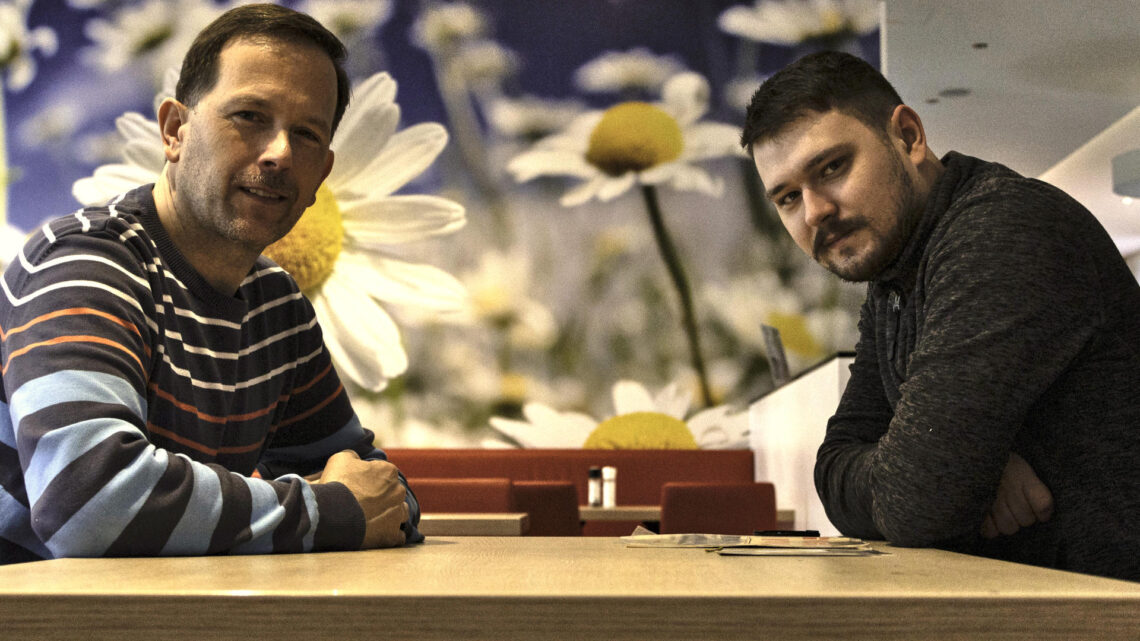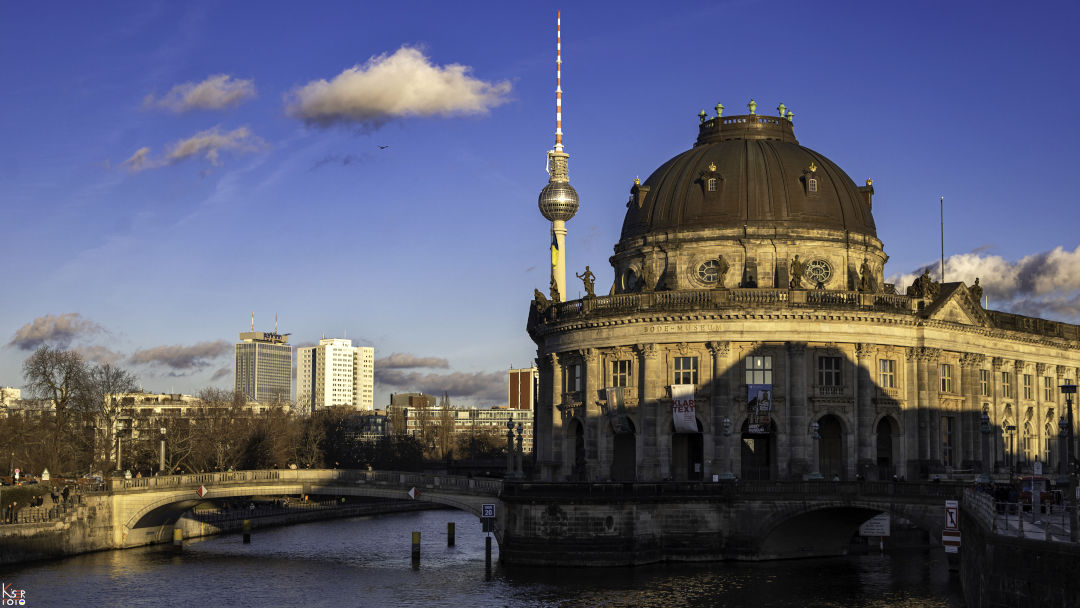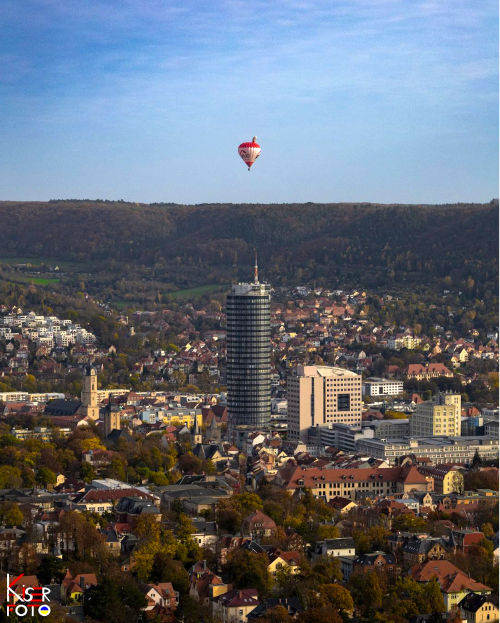My University Studies in Germany – Ivan from Ukraine4. April 2023

Our former student Ivan has been studying biotechnology in Jena since 2021. In our blog, he describes his path to studying in Germany and what tips he has for international students.
Hello Ivan, can you briefly introduce yourself?
I’d love to! My name is Ivan, I’m 22 years old and I’m from Khmelnytskyi, a medium-sized city in the west of Ukraine, roughly between Lviv and Kyiv.
When did you start learning German?
Already during my school years, I thought about studying in Germany. I always liked the German language and history. My parents agreed, so I started learning German more intensively – for three years as a second foreign language and in additional courses outside of school. During this time, I also went to Germany for a summer course and vacation with my parents, including Berlin and Dresden.
What happened after school?
After graduating from school in Ukraine, I studied medicine in Odesa for one year. Compared to Germany, it was relatively easy to get a place to study there. I want to help people, and actually, my goal was to become a military doctor.
With one year of studies in Ukraine, it is possible to study at a university in Germany without the detour via a Studienkolleg. I came to the Humboldt-Institut through an agency that took care of administrative matters, because this language school was recommended to me. It was important to me that a lot of German is spoken at the language school, that there are comfortable rooms and, of course, good teachers.
Which course location did you choose?
I chose a German course in Berlin because the city offers so many opportunities. The central location of the school is great, I could do almost everything by bike. I started with an A2 German course and by the end, I reached the C2 level. I found the B2 German course the most difficult, and the A2 level was the easiest for me.
My first step was to do everything in German: watch German movies and switch my computer and smart phone to German. That’s how I created my own German-speaking environment.
What did you do in your free time in Berlin?
My favorite hobby is photography. I love taking photos since 2016 and actually almost everything except portraits. I post my photos on Instagram under kaiserfoto.
Furthermore, I am also interested in history, since 2018 especially in the German Empire. That’s why a friend gave me the nickname Kaiser (the German word for emperor). During the German course, I read different books and magazines in German, mainly about photography. I collect coins from the German Empire, the Weimar Republic and the GDR. To do this, I often went to flea markets in Berlin, like the one at Mauerpark or Museum Island. Once I bought a book from 1915 in Fraktur typeface. It took me two months to read the book, and I had to look up many unknown words.
Otherwise, in Berlin, I can recommend the many great museums like the Technical Museum, the German Museum, the GDR Museum and generally the Museum Island. By the way, I took this beautiful photo there with the Bode Museum in the foreground:

What happened next with your university studies?
I still needed an official language certificate in order to be admitted to a university. I decided to take the telc C1 Hochschule exam since I prefer this exam to the TestDaF because the oral part takes place with the teacher, and you don’t just talk to a computer over the microphone.
After the German course, it was a bit complicated to get a study place for medicine in Germany. Therefore, I decided to study biotechnology. This course of study is very diverse. It is about the application of biological processes to solve technical problems, for example for the production of food or drugs. Later, the course branches out into brewing and pharmacology. I would like to work in the latter field later because I can help people get well again via medicines.
Biotechnology studies are offered in Berlin, Hamburg, Jena, and Mannheim, among other places. I chose Jena since the program was also more biological than technical. This was very important because, with my year of study in medicine from Ukraine, I am only allowed to study a subject related to biology. After my time in Berlin, I preferred to live in a smaller city, where it is also easier to find an apartment. Jena is a charming university city about three hours south of Berlin.

What can you tell us about the first months of your studies?
You definitely have more obligations, such as seminars and practical courses in the lab. And the distances are of course a bit longer than at Humboldt. Language-wise, it was easy for me. Only sometimes did I have to look up words, but the lecturers and fellow students always helped me. I can also always ask for help with exams. My environment here consists almost exclusively of German students, and everyone is very helpful. This is one of the advantages when studying at a smaller university.
From your experience in the German course and studying at university, what should international students keep in mind when they want to study in Germany?
I think it is important to understand the German mentality. For me, this includes politeness, punctuality, accuracy, little small talk, and abiding by rules and laws. You should be open to other people and integrate as best you can. At the same time, you have to know what you want and not be afraid to go out of your way and ask questions. But be always polite!
At my university (note: Ernst-Abbe-Hochschule Jena) I haven’t met any Ukrainian students yet, although, with the beginning of the war, more Ukrainians came to Jena.
In general, I met a lot of nice people in Jena, made new friends, and I am very happy that I chose Jena. I am grateful that I was quickly accepted here as a foreigner. I had not imagined that it would be so easy before.
Besides, the old town of Jena is very beautiful, and you should definitely try the Thüringer Rostbratwurst, it’s super delicious!
Thank you very much, Ivan!
PS: By the way, in our blog you can find more interviews with former students studying in Germany, such as:

